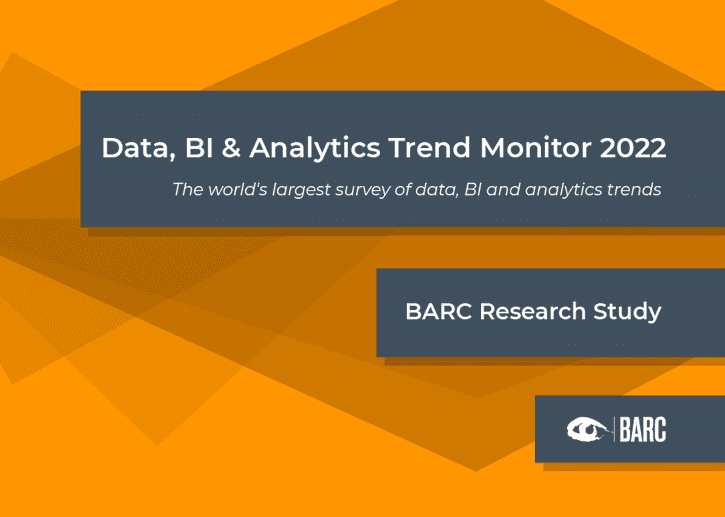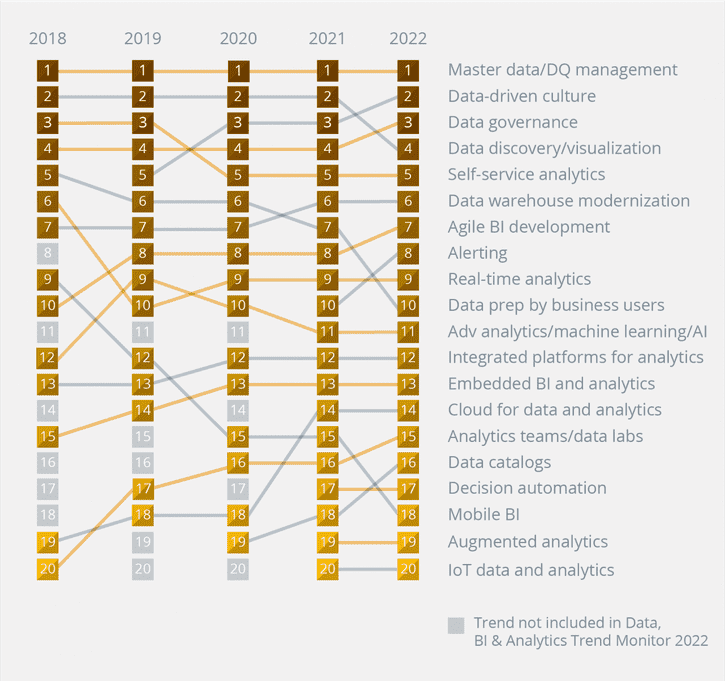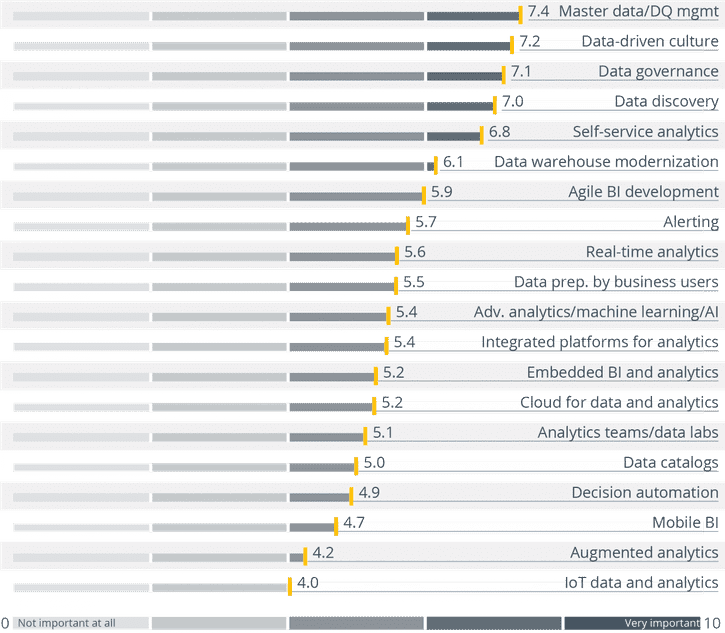Quality, Culture and Governance – The Data Trends Users Really Care About
Quality, Culture and Governance – The Data Trends Users Really Care About
The analyst firm BARC publishes the Data, BI & Analytics Trend Monitor 2022, providing a comprehensive overview of the hottest trends in the market for data management, BI and analytics. The full report is available as a free download.
Key findings:
- Establishing a data-driven culture has continued to grow in importance and now ranks as the second most important trend.
- Master data and data quality management remains the most important trend, a position it has held for the last five years.
- Companies are focusing on the basics of using and managing their data rather than shifting their priorities to more advanced methods.

Top five trends build the foundation for organizations to manage their own data
Data quality and master data management has been ranked as the most important trend for five years in a row now, while the second most important trend, establishing a data-driven culture, has steadily increased in importance.
Many companies are still adapting to changed requirements due to the COVID-19 pandemic. Although the situation now seems less acute and more long-term changes toward a ‘new normal’ are on the horizon, day-to-day business is far from settled. A look at this year’s data, BI and analytics trends reveals that companies are still working to position themselves well for the long term and are working on the foundation of their data usage.
“The overall picture indicates that companies are concentrating on the basics of using and managing their data before they shift their priorities on to advanced methods,” said Dr. Carsten Bange, CEO and founder of BARC. “Like 2020, 2021 is not a year of hype trends. Instead, companies are addressing the root causes of their challenges such as data quality, as well as working to build a holistic data-driven culture.”

Get ready for a data-driven culture
Since its introduction to the Trend Monitor in 2019, data-driven culture has always ranked among the top five trends and is constantly gaining in prominence. “This can be explained by the rising awareness that fostering a data-driven culture is vital to companies looking to realize their full data potential,” explained Bange.
Data-driven culture is considered important across all industries and geographical regions. Best-in-class companies have had this topic on their agendas for some time and presumably also provide the necessary resources for implementation. But there are also encouraging signs that laggards are now more interested in establishing a data-driven culture than before.
“Establishing a data-driven culture requires the encouragement of critical thinking as well as being willing to hand responsibility for data to business users. Organizations have to be aware that an in-depth cultural change is time-consuming and will probably face resistance,” said Bange.

About the Data, BI & Analytics Trend Monitor 2022
With 2,396 participants, BARC’s Data, BI & Analytics Trend Monitor 2022 is the largest global trend survey on analytics, business intelligence and data management. It offers a detailed evaluation and weighting of 20 individual trends by region, industry and self-assessment of the participating companies (“Best-in-Class” vs. “Laggards”). The complete study is available free of charge thanks to sponsorship by InfoZoom, Logi Analytics, MicroStrategy and TARGIT.
Download the latest Trend Monitor here.
